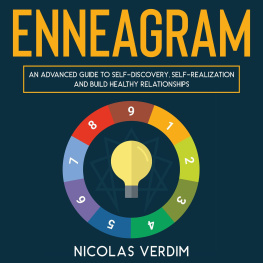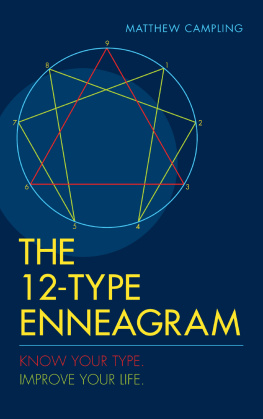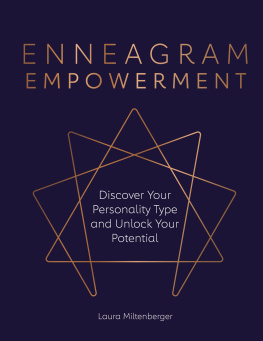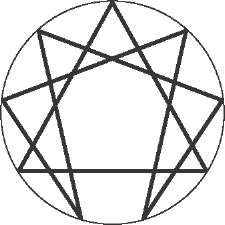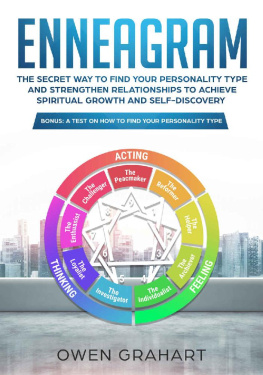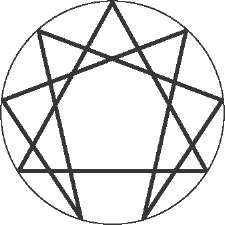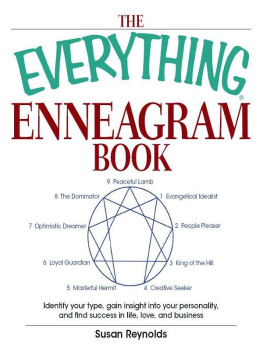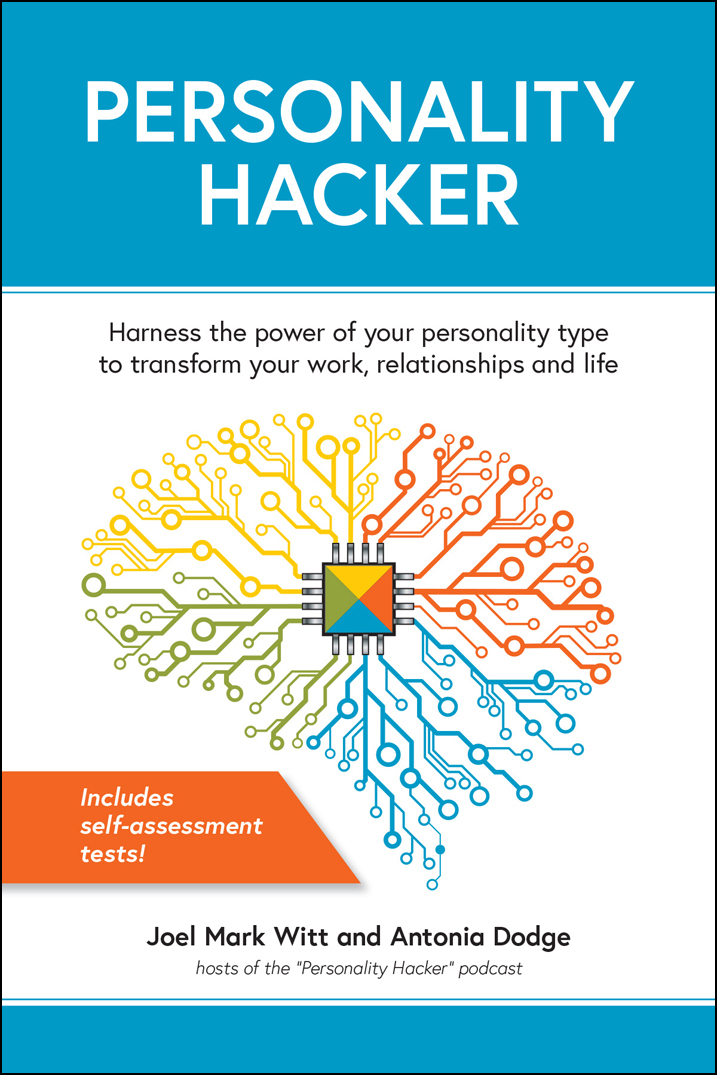Table of Contents
Guide

Text copyright 2018 Joel Mark Witt and Antonia Dodge. Design and concept copyright 2018 Ulysses Press and its licensors. All rights reserved. Any unauthorized duplication in whole or in part or dissemination of this edition by any means (including but not limited to photocopying, electronic devices, digital versions, and the internet) will be prosecuted to the fullest extent of the law.
Published in the United States by:
Ulysses Press
P.O. Box 3440
Berkeley, CA 94703
www.ulyssespress.com
ISBN: 978-1-61243-779-8
Acquisitions: Bridget Thoreson
Managing editor: Claire Chun
Editor: Shayna Keyles
Proofreader: Bill Cassel
Front cover design: Justin Shirley
Interior design and production: Jake Flaherty
Artwork: cover Bygermina/shutterstock.com; page 308 Joel Mark Witt and Antonia Dodge
Distributed by Publishers Group West
NOTE TO READERS: This book is independently authored and published and no sponsorship or endorsement of this book by, and no affiliation with, any trademarked brands or other products mentioned within is claimed or suggested. All trademarks that appear in this book belong to their respective owners and are used here for informational purposes only. The authors and publisher encourage readers to patronize the quality brands mentioned in this book.
Contents
The real problem of humanity is the following: We have Paleolithic emotions, medieval institutions, and god-like technology.
E. O. Wilson
Identity questions often take center stage in our society. People talk about gender identity, national identity, cultural identity, sexual identity, and even lost identity. Humanity seems to be in the midst of a collective identity crisis.
We dont really know who we are anymore. We face crippling insecurity. On a micro level, online comment wars break out over anything from politics to vaccinations to child-rearing. On a macro level, real international wars break out over religion, culture, or national pride. These conflicts are rooted in identity and the defensiveness of our egos.
We may be so defensive because we feel our identities are constantly under attack. When a person lacks a strong sense of who they are, it is easier for them to marginalize or undermine anothers sense of self.
We are all searching for ourselves in an ocean of conflicting narratives.
We believe there are several reasons why humanity faces this identity crisis: Technology evolves too fast, theres a glut of information, and the world is increasingly globalized.
Technology Evolves Too Fast
Technologies are outpacing our ability to adapt. Just over ten years ago, Bill Baker wrote in Destination Branding for Small Cities, We are living in the most over-communicated time period in history. At the time of his writing, the first iPhonea piece of consumer technology that changed the game of connectedness and communicationhad not yet been released.
According to Moores Law, the capacity of technological hardware doubles every two years, rendering advancements in consumer tech both more powerful and more affordable. This is why the phone in your pocket is more powerful than the room-sized computers NASA relied upon to calculate the Apollo moon landings. And on those phones, we install an infinite array of apps that we use to engage with each other, while simultaneously complaining about how we lack true connection and intimacy.
This is not to say that consumer technology is at fault or that our modern world is somehow wrong. Technology and digital communication arent the problems; its that their evolution outpaces our own. We fear being ostracized and disliked. According to our Paleolithic emotions, being disliked by a large group is similar to getting kicked out of the tribea fate equal to death. Because of this, our mental wiring causes us to react to negative words from someone online as if our survival were in imminent danger. We have ancient imprints telling us to be careful, for if an entire group of people were to dislike us, we might die. Being hated by a group has negative survival implications, and there just hasnt been enough time to upgrade these DNA-level blueprints.
Technology gives us new opportunities, but also pressures us to keep pace in a fast-moving world.
Information Overload
We spend a lifetime attempting to know about everything but struggle to know ourselves. We have too much data coming at us, all too fast. We cant sort through and vet the rapid outpouring of information in a constantly connected world. The internet is great for organizing and distributing all the worlds information, but it also creates in us a hunger for producing (and consuming) more and more.
People today know more about global politics, world events, and celebrity relationships than any previous generation knew. Yet somehow, we are often baffled about ourselves and the people we spend the most time around.
Globalization Leads to Fragmentation
The world is becoming more globalized, yet also more fragmented and chaotic. We as humans used to strongly identify with our immediate families, tribes, and even nation-states, but as national borders dissolve and humans connect globally, we are left without strong group identities and we lose our individual roles within those groups.
So, we gravitate to ideologies that bind us together. And we know that ideologies, rooted deeply in our egos, are often the source of escalated conflict. We then find ourselves tethered to our ideals rather than to other humans. We can see this with the rise of authoritarian leadership. Lacking individual identities, masses grasp at any cult of personality that can give them markers of strong identity. Even when the leadership is harsh and acts against the peoples best interest, people tend to accept it because it helps them feel a sense of self.
Humans need to move past superficial markers of identity. Its time to reach out and experience a deep sense of self-knowing. People need to know themselves to love themselves, and they need to love themselves to love others. We, the authors, believe that a strong sense of identity will help you learn to do those things, as well as achieve a greater sense of personal security and reduced anxiety.
Acceptance of Self and Others
When you have a strong sense of identity, you can make space for and accept others. We believe that by understanding and honoring your own individuality, you will become empowered to claim your lifes passion, purpose, and mission.
A strong identity is built on feeling secure. Security comes from a modest self-evaluation, without inflating or diminishing your own talents. It is knowing youll be okay with whatever life throws at you. When we all show up as our secure selves, we will create a more peaceful world that makes space for others.
This often means agreeing to disagree. There will be disagreements as we create a world that honors individual expression and supports everyone becoming the person they were meant to be. But disagreements and peace can coincide when individuals are confident in who they are. We nurture confidence when we take advantage of the tools designed to understand ourselves better.
Personal Security
A strong sense of identity inoculates you from being hacked by others who know you better than you know yourself. There is a growing amount of evidence that the 2016 United States presidential election was swayed by foreign governments and private research firms. These actors used a combination of misinformation campaigns, personality insights, and psychographic data to hack into peoples behaviors, preferences, and motivations to influence the elections outcome.
Next page

